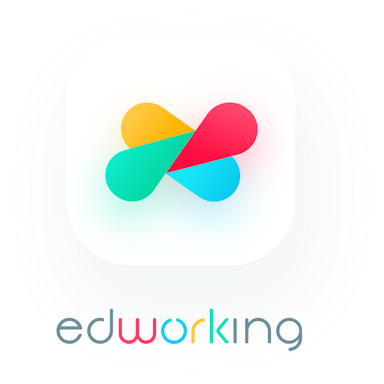Have you ever embarked on a research project and found yourself struggling to stay on track, or feeling lost and unsure of what to do next? A research plan can help you avoid these challenges and ensure that your research project is a success.
In this article, we'll dive into the key features of a research plan, and outline the steps you can take to create one for your research project. Whether you're a student, researcher, or professional, you'll learn what is the importance of having a research plan and how to make one that will help you achieve your research goals.
 What is a Research Plan in a Project Management?
What is a Research Plan in a Project Management?

A research plan in project management can be thought of as a blueprint for the research that will be done as part of the project. Essentially, it's a roadmap that outlines everything from the background of the project to the methods and techniques that will be used, to the timeline and resources required to carry out the research.
At its core, the purpose of a research plan is to make sure the research is organized, and systematic and contributes to the overall success of the project.
What are the 5 purposes of research?
Research is at the heart of human progress, and it serves a variety of purposes. Here are five key reasons why research is essential:
Knowledge Expansion
Research helps us better understand the world around us, uncovering new information and deepening our understanding of existing knowledge.
Problem Solving
Through research, we can identify the root causes of complex issues and develop innovative solutions to tackle them.
Policy Development
Research findings inform evidence-based policymaking, ensuring that decisions are grounded in data and best practices.
Technological Advancements
Scientific research paves the way for groundbreaking inventions and technological advancements that shape our lives.
Skill Development
The research process hones critical thinking, problem-solving, and communication skills, which are essential in today's fast-paced, ever-changing world.
What are the methods of research?
Various research methods are available to choose from, depending on your research question and objectives. Here are a few common methods:
Qualitative Research
This method focuses on exploring human experiences and understanding the meanings people attach to their actions or surroundings. It often involves interviews, focus groups, and observations.
Quantitative Research
Quantitative research seeks to quantify data and analyze relationships between variables using statistical methods. Surveys, experiments, and numerical data analysis are common in this approach.
Mixed Methods
This approach combines both qualitative and quantitative methods, capitalizing on the strengths of each to provide a more comprehensive understanding of a research question.
Experimental Research
In this method, researchers manipulate one or more independent variables to observe their effect on a dependent variable, allowing for causal inferences.
Case Studies
Case studies involve an in-depth examination of a specific situation or example, offering rich insights into the complexities of real-world phenomena.
When selecting your research method, consider the goals and context of your study. Keep in mind that the choice of method can significantly impact the outcomes and conclusions drawn from your research.
 What goes into a research plan?
What goes into a research plan?
Here are some of the key components you might expect to see in a research plan:
1. Background: This section gives a brief overview of what the project is all about and why the research is being done.
2. Objectives: Here, you'll find the clear and specific goals for the research, along with the questions that will be answered and the outcomes that are expected.
3. Methods: This section lays out the different methods that will be used to gather information, such as surveys, interviews, focus groups, or experiments.
4. Participants: You'll learn about the people who will be included in the research, along with the criteria for choosing them and how many participants there will be.
5. Data collection: This section provides a detailed plan for how the data will be gathered, including the tools that will be used and the procedures for collecting and storing the information.
6. Data analysis: Here, you'll find the plan for analyzing the data and what statistical methods will be used to do so.
7. Timelines: This section outlines the schedule for carrying out the research, with deadlines for each step of the process.
8. Budget: This part provides an estimate of the resources that will be required, including personnel, equipment, and materials.
9. Ethical considerations: This section addresses important ethical issues, such as informed consent, confidentiality, and data protection.
Overall, a well-designed research plan is an essential part of successful project management, helping to minimize risk and reduce the chances of errors or delays.

 Research Plan Features
Research Plan Features

Conducting a study can be compared to planning a road trip with your friends. Just like a well-planned road trip, a successful study requires a solid research plan. A research plan acts as a roadmap that guides you through the entire process, from start to finish, to ensure a successful outcome.
A study can have unexpected challenges and obstacles. For example, you may encounter bad weather or road closures on your trip. In a study, you may encounter unexpected challenges, like missing data or a lack of participants. But, with a well-planned research plan, you'll be prepared to handle these challenges and keep moving forward toward your destination.
Just like reaching your destination on a road trip, a successful study requires patience and persistence. You may encounter detours and delays, but with a clear roadmap, you'll be able to reach your destination. In a study, you may encounter setbacks, but with a solid research plan, you'll be able to overcome these challenges and achieve a successful outcome.
Here are some of the key features you need to include in your research plan:
Feature 1: Objectives and Goals - The Destination
Your research objectives and goals are like the destination you're trying to reach on your road trip. Just as you need to know where you're headed, your research plan should clearly define what you hope to achieve through your study. This includes defining the questions you want to answer, the outcomes you expect to see, and the impact you aim to have.
For example, if you're studying the effects of a new drug on patients with a specific illness, your objectives and goals might be to determine the drug's effectiveness and safety.
Feature 2: Methodology - The Route
Your methodology outlines the methods and techniques you'll use to conduct your study, just like choosing the best route for your road trip. This includes the study design, sample size, data collection methods, and analysis techniques. The methodology should be chosen based on your research question, available resources, and limitations of your study.
For example, if you're studying the impact of a new teaching method on student performance, your methodology might include conducting a randomized control trial to compare the new method to traditional teaching methods.
Feature 3: Timelines and Budgets - The Map
Your timelines and budgets act as the map you'll use to plan your road trip. Your research plan should include a schedule of when each aspect of your study will be completed and the resources you'll need to complete the project. These should be realistic and achievable, allowing for contingencies in case of unexpected events.
For example, if you're conducting a study on the effects of a new environmental policy on air quality, your timeline might include conducting air quality tests before and after the policy is implemented, and your budget might include the cost of the tests, equipment, and labor.
 How to Write a Research Plan
How to Write a Research Plan

Writing a research plan can seem overwhelming, especially if you're just starting. But trust me, having a solid plan in place will make the whole research process a lot smoother. A research plan is just a roadmap for your research project - it outlines your goals, the methods you'll use to achieve them, and the timeline for getting everything done.
So, where do you even begin with creating a research plan? Here's a step-by-step guide to help you get started:
Step 1: Find Your Focus - Define the Research Question
Before you dive into any research project, you need to have a clear idea of what you want to accomplish. The first step is to define the research question - this will serve as the cornerstone of your project. When formulating your research question, think about the problem you want to solve and how you want to approach it. It's important to make sure your research question is relevant, feasible, and aligns with the overall goals of your project.
Example: If you're interested in exploring the impact of social media on mental health, your research question could be "How does social media usage affect the mental well-being of young adults?"

Step 2: Get to Know the Literature - Review the Literature
Next, you'll want to familiarize yourself with what's already out there on your topic. This is where the literature review comes in - it will provide you with a comprehensive understanding of what's already known and what still needs to be explored. The literature review involves searching academic journals, books, and other sources for information on your topic. By the end of this step, you'll have a solid foundation of knowledge and a better idea of the gaps in the existing knowledge that your research project will fill.
Example: If your research question is about the impact of social media on mental health, you could search for articles and studies that have looked at the relationship between social media usage and mental well-being.
Step 3: Plan Your Attack - Develop the Methodology

Now that you have a good understanding of your topic and what's already out there, it's time to develop a plan for your research project. This is where you'll decide on the research design, sample size, data collection methods, and analysis techniques that will best address your research question. Your methodology should be based on the literature review and should be feasible, ethical, and reliable.
Example: If you're exploring the impact of social media on mental health, you could use a survey to gather data from young adults on their social media usage and mental well-being. You could also use statistical analysis to identify patterns and relationships between these variables.
Step 4: Get Organized - Prepare the Timeline and Budget
Finally, it's time to put all the pieces together and prepare a timeline and budget for your research project. This involves estimating the resources you'll need for each aspect of your project and creating a schedule for completing it. When developing your timeline and budget, it's important to be realistic, achievable, and flexible. Make sure to allow for unexpected events and contingencies.
Example: If you're exploring the impact of social media on mental health, your timeline could include steps like designing the survey, recruiting participants, collecting and analyzing data, and writing up the results. Your budget could include the cost of survey software, printing, and any other resources you'll need to complete the project.
 How do you write a research plan on Edworking?
How do you write a research plan on Edworking?
We understand the importance of a good research plan and how it can make or break your work. But where to begin? Enter Edworking, the all-in-one productivity platform that makes planning and executing research projects a breeze. In this article, we'll guide you on how to write a research plan on Edworking while providing helpful resources to empower you throughout the process.
Define your research objective
Before diving headfirst into the sea of research, it's essential to know your destination. What do you want to achieve with your research? By defining clear objectives, you'll be able to stay focused and streamline your efforts. Use Edworking's task management feature to create tasks and milestones for your objectives, keeping your research plan on track.
Identify your research questions
Once you've set your objectives, it's time to dig deeper. What are the burning questions that need answers? Listing these questions will help you stay on course and ensure you're gathering the right information. Try using the Stories feature in Edworking to share your questions with your team, encouraging open discussion and collaboration.
Outline your methodology
In the world of research, methodology is king. Decide which methods you'll use to collect and analyze data, and consider the ethical implications of your choices. Will you conduct interviews, surveys, or observe from afar? With Edworking's workspace, you can document your methodology in real-time, collaborate with your team, and even publish it as a blog.
Allocate resources and set a timeline
A good research plan needs a realistic timeline and proper resource allocation. Estimate how long each task will take, and assign resources accordingly. Edworking's task management tool lets you assign tasks to team members, track progress, and communicate updates seamlessly.
Monitor and adjust your research plan
Life is full of surprises, and your research plan is no exception. Keep an eye on your progress, and be ready to adapt to new information or unexpected obstacles. By using Edworking's integrated communication tools, you'll be able to pivot and make adjustments in real time, ensuring your research plan stays on course.
In conclusion, writing a research plan on Edworking is a walk in the park when you follow these steps. The platform's integrated features provide everything you need to create, manage, and execute your research plans, allowing you to focus on what truly matters: the success of your project. So, why wait? Sign up for a free demo on Edworking today and bring your research plans to life.
 Conclusion
Conclusion
Thank you for taking the time to read this article on the importance of a good research plan. I hope you found it informative and helpful in your research journey. Remember, a solid research plan is the key to a successful research project and can make all the difference in achieving your goals and objectives.
If you're looking for a tool to help you create a research plan that's both well-structured and effective, I highly recommend checking out Edworking. This online platform provides you with all the tools you need to create a comprehensive research plan. With Edworking, you'll be able to streamline the research planning process and ensure that your project is a success. So why not give it a try today and see how it can help you reach your research destination with ease and confidence!







